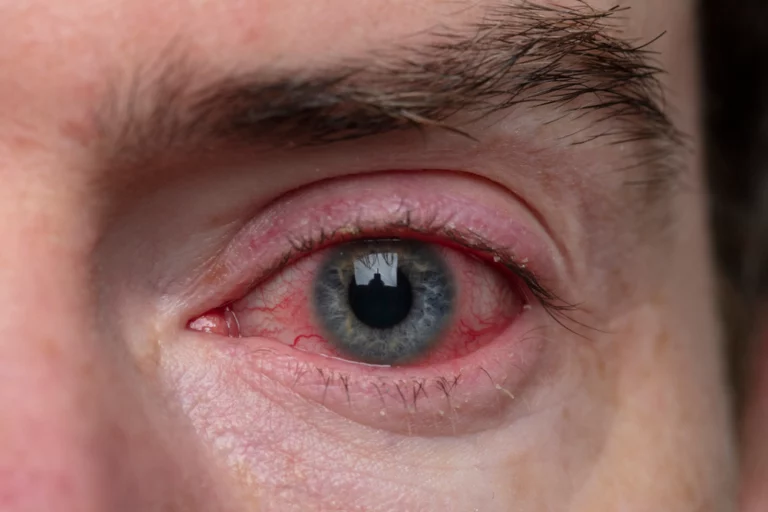I Think My Child Is Addicted To Alcohol—What Should I Do?
When you think your child is addicted to alcohol, it can be a very taxing and upsetting experience. It’s important to be aware of how you should proceed so that you can give your child the most effective help. Realize that overcoming addiction is a time-consuming and difficult road, and it’s not something that can be done in a single day. Make sure to stay patient and provide help and assurance to your child as they strive for recovery.
Continue reading to learn more about alcoholism and what you can do to help your child recover from this devastating addiction.
Alcoholism Explained
Alcoholism is a long-term disorder identified by the profuse and recurrent ingestion of alcohol, even though it results in dire effects to the person’s physical and mental health, relationships, and everyday life. Individuals with alcoholism may really want or be eager for alcohol, and they may find it hard to control their drinking habits or to quit drinking once they start. They may persist in drinking even when it brings about issues at work, in their social connections, or with their physical condition.

When a person is addicted to alcohol, they may experience withdrawal symptoms if they suddenly quit drinking. These symptoms can include shaking, seeing or hearing things that aren’t real, having seizures, and confusion. Alcoholism is a very serious health issue that needs specialized care in order to be overcome.
Signs Your Child Is Addicted to Alcohol
Parents should be aware of the signs that may suggest their child is having issues with drugs or alcohol. While these signs may be typical behavior during adolescence, experts believe that if several signs are observed simultaneously or if the signs appear suddenly, then it may be a sign of substance abuse. The following are indicators that a child is an alcoholic:
- Rebelling against societal norms or family rules
- Sudden mood changes and aggression
- Poor performance at school or work
- Finding alcohol in their room or hidden in their belongings
- Lack of personal hygiene and upkeep
- Disinterest in activities once enjoyed
- Hanging around new friends
- Appearing intoxicated such as having bloodshot eyes, slurred speech, or smelling of alcohol
- Experiencing uncomfortable withdrawal symptoms if they stop drinking for a period of time
- Experiencing trouble with the law or authorities
What Causes Alcoholism in Adolescence?
When parents discover that their child has a drinking problem, they often feel guilty for not recognizing the early warning signs. It can be difficult to spot the initial indicators of alcohol abuse, and it is not uncommon for outside sources to bring the issue to light. Alcohol consumption is a common occurrence during the teenage years, and many young people do not understand the seriousness of their drinking. As a result, adolescents that are more likely to take risks and act out are likely to experiment with alcohol.
Heredity is a major factor in addiction. Investigations have revealed that it can contribute to half of an individual’s likelihood of getting addicted. Nevertheless, just because a person’s family has a history of alcoholism doesn’t necessarily mean their child will grow up to be a drinker. Additionally, young people who have endured trauma may be more likely to try out drugs and alcohol. Since numerous kids who come from chaotic households don’t learn how to manage their emotions in a constructive way, liquor and drugs take the place of healthy coping strategies.

Dangers of Untreated Alcoholism
According to the National Institute on Alcohol Abuse and Alcoholism, approximately 14.5 million Americans suffer from an Alcohol Use Disorder (AUD) with 95,000 alcohol-related fatalities reported annually. In the United States, alcohol is currently the third highest preventable cause of death.
If alcoholism is not addressed, there can be dangerous and even life-threatening consequences. It can cause a variety of physical and mental health issues, like liver damage, pancreatitis, heart disease, depression, worry, and social seclusion.
Consuming too much alcohol can also up the probability of incidents like car crashes and falls, as well as hazardous activities, for instance driving while intoxicated or having unprotected sex. Unaddressed alcohol addiction can also bring about serious social and financial difficulties, like getting fired, financial troubles, and strained connections with family and friends.
How Can I Help My Child?
When a parent has a child who is an alcoholic, their initial reaction is usually to try and help them. This is understandable since as a parent, it is normal to want to do all that is possible to help a child in a challenging situation. However, addiction is a very powerful disorder which can make even the most reasonable decisions appear irrational. It is essential, though, for a parent to take care of themselves first in order to be able to handle their alcoholic child. The following are ways to help them when you are ready:
Take Care of You
As mentioned previously, it is essential to maintain good self-care when your kid is suffering from alcohol use disorder. Taking care of yourself can range from proper nutrition, adequate sleep, and regular exercise. Doing so safeguards your overall health, energy, and mental capacities which are essential for taking on the challenge of caring for an alcoholic child. Neglecting your own needs can weaken your ability to cope with this crisis, making it harder for you to manage the situation.
Find Support
You are not isolated in dealing with your child’s alcoholism – many other parents are in similar positions. Alcoholism is so common that it is inescapable, and you should take advantage of the support systems out there. One of the best ways to do this is to go to Al-Anon meetings. This group is related to Alcoholics Anonymous and is dedicated to helping those who are affected by a loved one’s drinking. Al-Anon does not focus on finding a solution to the alcoholic’s problem, but rather on providing a space to help those affected by it. At these meetings, you can tell your story, listen to the stories of others, and discuss how to build up your strength and heal.
Communicate Effectively
Make sure your child is aware that you are there for them and that you care about them. Speak in a positive, encouraging manner and avoid being hurtful or making assumptions. Using “I” statements is beneficial as it prevents making accusations and lets you be a part of the conversation. It’s a good idea to bring up a particular worry.

For example, you can talk about how alcohol has had an undesired effect, like causing violence or monetary difficulties. Instead of saying “You’re an alcoholic and you need to seek help right away,” it’s better to say “I care about you and you mean a lot to me. I’m concerned about the amount you’re drinking, and it might be damaging to your well-being.” Make sure to be prepared for any reaction. Regardless of what their reaction is, stay calm and make sure they know you respect and support them.
Do Not Enable Them
You can’t sway an alcoholic with logic or change the way they are; they can even use the affection you have for them to their advantage. Problem drinkers are skilled at exploiting the kindness of others for their own gain. Therefore, the measures we have to take in dealing with alcoholism might not come naturally.
For example, you may be inclined to send money to your child if they call from jail. The thought of your child in jail horrifies and upsets you, so you want to help them out. However, by bailing out the alcoholic from the situations they have caused themselves, you are shielding them from the true repercussions of their drinking. Assisting them in this way will not aid in overcoming alcoholism.
Get Them Professional Help
For someone with AUD, getting professional help is the primary step to take. These programs provide medical care for withdrawal symptoms, therapy to help individuals with AUD cultivate healthy means of managing their emotions, and a supportive group. Offering your child definite plans for getting treatment can support them in the healing process.
Prior to speaking with your child, create a list of addiction treatment centers in the area. The most suitable option for them relies on multiple components, for example, their degree of reliance, any accompanying addictions or mental health issues, and their past efforts to quit. Together, you and your child can investigate and come to a consensus on which one would be best suited to them and their individual needs.
Treatment Options for Alcoholism in Louisville
There are several types of treatment for alcohol addiction, including the following:
Detox
Detoxification is the procedure of helping the body to remove alcohol from its system. This can be done in a medical facility or a rehabilitation center. During the detoxification process, people may experience withdrawal symptoms which can be managed with medication and attentive care.
Medication-Assisted Treatment
Medications exist that can be administered to treat alcohol addiction, such as disulfiram which produces unfavorable outcomes if alcohol is ingested; naltrexone which hinders the effects of alcohol; and acamprosate which can diminish the desire for alcohol.
Support Groups
Organizations like Alcoholics Anonymous (AA) provide a secure and helpful atmosphere for those who are recovering. These associations provide comfort and responsibility, along with a feeling of inclusiveness and affiliation.

Therapy
Treatment for alcohol addiction often includes therapy, which may be conducted on an individual or in a group. Cognitive-behavioral therapy is a type of therapy used to support people in recognizing and altering negative thought patterns and actions. Additionally, motivational interviewing assists individuals in addressing and resolving any doubts they have about treatment.
Rehab
Rehabilitation programs, often referred to as “rehab,” offer comprehensive care for alcoholism in a sheltered atmosphere. These programs usually involve a mix of therapy, support groups, and other treatments. rehab can take place in either a residential or outpatient environment, depending on the severity of a client’s addiction and the stability of their home life.
Alcohol Addiction Treatment in Louisville, Kentucky
Louisville Recovery Center is dedicated to providing assistance to individuals who are suffering from substance abuse and addiction. Treatment is a necessity for different reasons, like giving people knowledge about their reliance on drugs, assisting them with a secure detoxication, determining the source of their addiction, and instructing them in how to build up better coping skills, stress management, and preventive measures to remain abstinent. Treatment options are available in various forms and levels of care, depending on the individual’s particular needs and worries.
If your child needs help for dealing with addiction or substance abuse in Louisville, then the professionals at Louisville Recovery Center have the resources to assist you and would be delighted to be of service. Contact us today to learn more.







